
Does a Passenger Have to Show an ID in Arizona?
 By now, we’ve all seen the videos of passengers refusing to show an ID during traffic stops. Is this legal? Although you might have numerous reasons for safeguarding your ID, legislation in Arizona does give authority figures the ability to require ID presentation in certain scenarios.
By now, we’ve all seen the videos of passengers refusing to show an ID during traffic stops. Is this legal? Although you might have numerous reasons for safeguarding your ID, legislation in Arizona does give authority figures the ability to require ID presentation in certain scenarios.
In this article, we’ll cover the situations that require ID remittances, what rights you have as a passenger in Arizona, and the potential consequences of noncompliance. If you have already been involved in a law enforcement encounter, it’s important to seek representation right away.
Arizona is a Stop and ID State
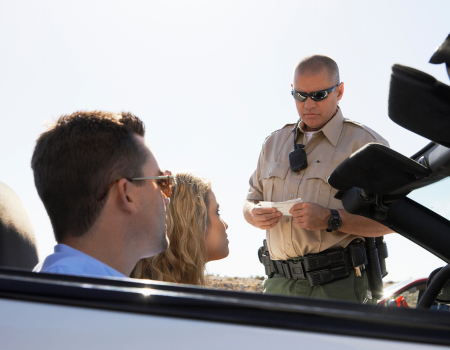 In Arizona, law enforcement officers can request your identification if they have reasonable suspicion to believe you are involved in criminal activity. Reasonable suspicion means that you have or are in the process of committing a crime. Law enforcement officials must be able to prove reasonable suspicion, as a “hunch” won’t hold up in court.
In Arizona, law enforcement officers can request your identification if they have reasonable suspicion to believe you are involved in criminal activity. Reasonable suspicion means that you have or are in the process of committing a crime. Law enforcement officials must be able to prove reasonable suspicion, as a “hunch” won’t hold up in court.
The other situation that gives law enforcement the right to request your ID is lawful detention. Lawful detention triggers the Stop and ID law and is commonly seen in traffic stops, investigatory stops, and arrests.
If law enforcement does have legal grounds for requesting your ID, you must provide your true full name and furnish your ID. However, you do not need to carry any type of identification that substantiates your address or date of birth.
Your Arizona ID Rights
Outside of reasonable suspicion and lawful detention, you do not need to show law enforcement your ID or answer any questions regarding your activities or destinations. Whether you are in the midst of a routine traffic stop or any other conversation with law enforcement, you have the following rights under Arizona law:
- Right to Remain Silent – Although Arizona’s Stop and ID law requires you to furnish your ID and legal name in certain situations, you have the right to avoid any other information requests or probing questions.
- Right to Refuse Consent to Search – Arizona law enforcement officials cannot search you or your vehicle without your consent, probable cause, a warrant, or legal grounds.
- Right to an Attorney – If you are being detained, you have the right to request an attorney during questioning.
These rights apply to both drivers and passengers in a motor vehicle. Knowing these rights can help you prepare if you are pulled over or detained by law enforcement officials.
Consequences of Noncompliance
 Failing to provide an ID in Arizona is a criminal offense. If law enforcement has reasonable suspicion and you refuse to show an ID, you could be detained. Both failure to provide a license and failure to provide identification are considered class 2 misdemeanors, with up to $750 in fines. A maximum of 4 months in jail and probation can also be consequences depending on the circumstances.
Failing to provide an ID in Arizona is a criminal offense. If law enforcement has reasonable suspicion and you refuse to show an ID, you could be detained. Both failure to provide a license and failure to provide identification are considered class 2 misdemeanors, with up to $750 in fines. A maximum of 4 months in jail and probation can also be consequences depending on the circumstances.
Summary
Do you believe you were wrongly required to show an ID in Arizona? How about being detained because of refusing identification? If you find yourself in either of these situations, contact our team at The Law Office of Zayed Al-Sayyed right away. It’s important to have the right representation when working through these matters.
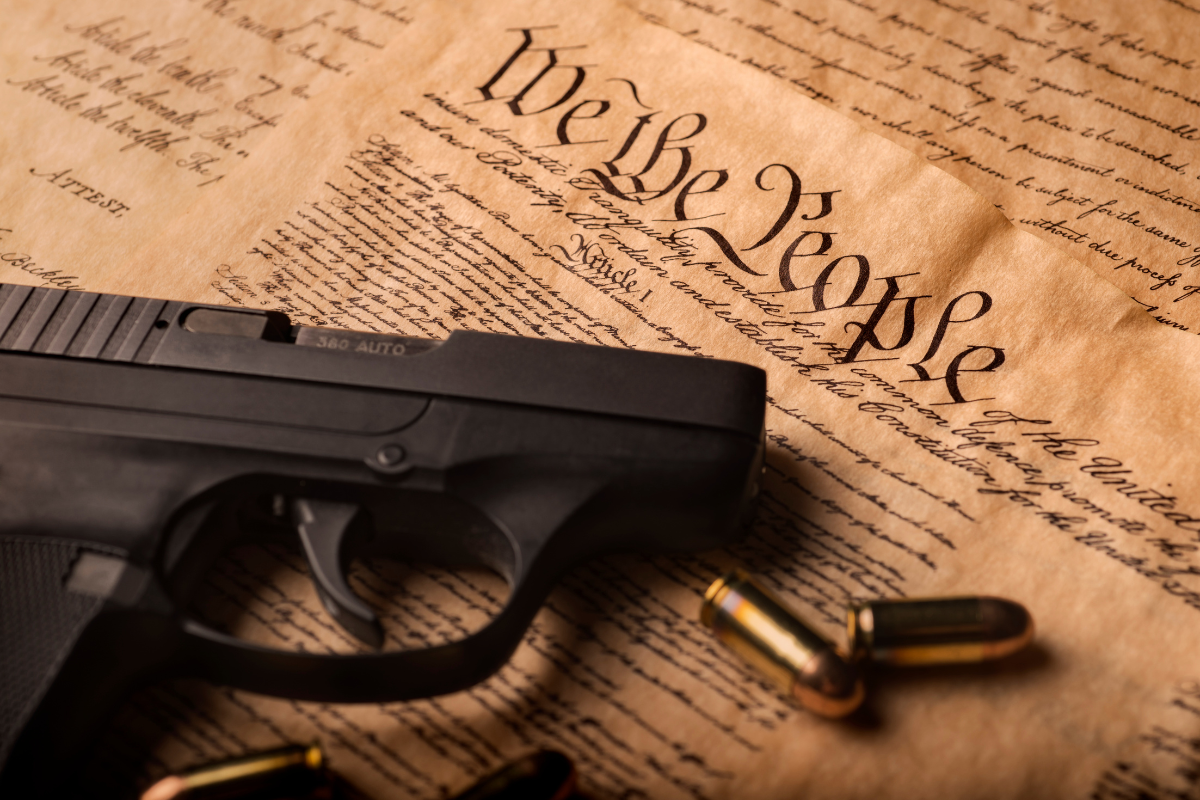
Penalties for Illegal Possession of a Firearm in Arizona
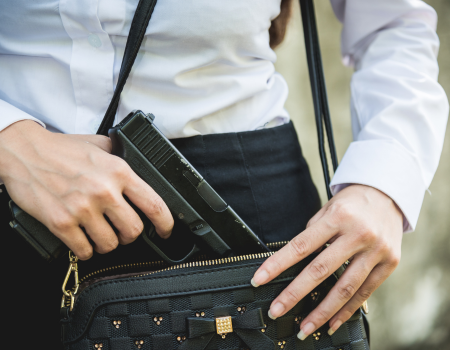 Arizona laws are constantly changing, especially surrounding firearm possession. Generally, Arizona residents have the right to carry firearms unless the law deems them a prohibited possessor. Seems pretty straightforward, doesn’t it?
Arizona laws are constantly changing, especially surrounding firearm possession. Generally, Arizona residents have the right to carry firearms unless the law deems them a prohibited possessor. Seems pretty straightforward, doesn’t it?
Well, not exactly. An Arizona resident can be considered a prohibited possessor for a variety of reasons, which is why you need to understand the basics of Arizona gun laws and the potential penalties for illegal firearm possession.
What are Arizona Gun Laws
Arizona gun laws are fairly lenient compared to other states in the nation. There is no rigorous background check, state permit, or license needed to buy a firearm. In addition, your firearm doesn’t need to be registered, even if you conceal carry. However, there are specific places where firearms are prohibited, including:
- Schools
- Childcare centers
- Restaurants and bars
- Jails and prisons
- Power and nuclear plants
- Polling places during elections
- Posted private property
- Courthouses and other federal buildings
Understanding where firearms are specifically prohibited can help you avoid stiff penalties and criminal charges.
What is a Prohibited Possessor?
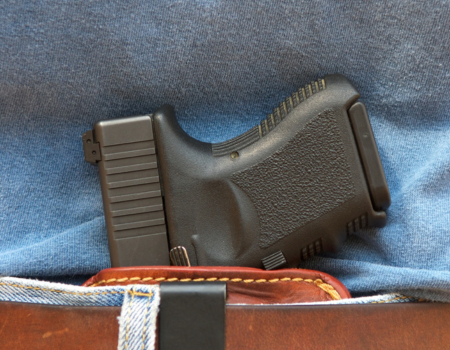 Unless you are considered a prohibited possessor, Arizona residents have the right to own guns. Immigration status and life history are the two main reasons why an Arizona resident would receive prohibited possessor status. Here are a few more situations where you might be considered a prohibited possessor:
Unless you are considered a prohibited possessor, Arizona residents have the right to own guns. Immigration status and life history are the two main reasons why an Arizona resident would receive prohibited possessor status. Here are a few more situations where you might be considered a prohibited possessor:
- You are a danger to yourself or others and fit the definition under Arizona Statute 36-640.
- You are a convicted felon.
- You are incompetent to stand trial.
- You are found not guilty as a result of insanity in a criminal case.
- You are incarcerated, on house arrest, parole, or other monitoring.
- You are a foreign national present in Arizona with a nonimmigrant visa.
In some situations, you can have your gun rights reinstated.
What are Penalties for Illegal Possession of a Firearm in Arizona?
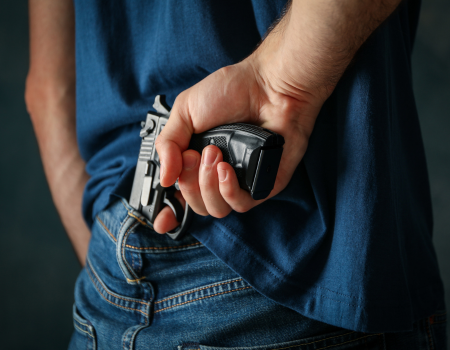 Illegal possession of a firearm in Arizona can come with serious penalties and fines, including:
Illegal possession of a firearm in Arizona can come with serious penalties and fines, including:
- Providing a firearm to a person with a known gang conviction is considered a class 3 felony, with up to seven and a half years in prison.
- Possession of a firearm as a prohibited possessor is a class 4 felony, with up to three years in prison.
- Possession of a firearm on school property is a class 6 felony, with up to one and a half years in prison.
- Providing a firearm to a prohibited possessor is a class six felony, with up to one and a half years in prison.
If you are accused of any of these items, contact a lawyer right away to minimize your jail time and penalties.
Summary
Are you considered a prohibited possessor and trying to get your status changed? How about being convicted of illegal possession of a firearm in Arizona? Regardless of your situation surrounding firearms, you want to be sure you have the right professional standing behind you. Contact to our team at The Z Lawyer today to see how we can help you navigate Arizona firearm laws.
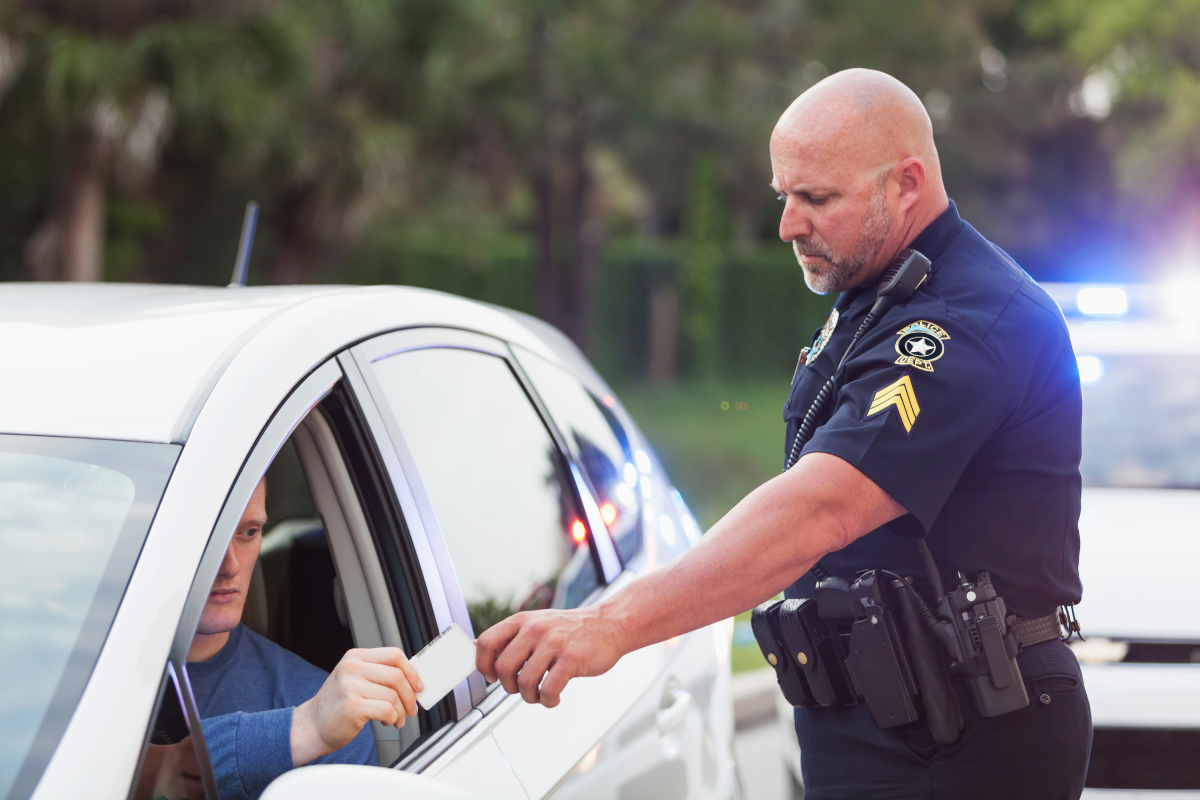
Can You Refuse to Show ID in Arizona?
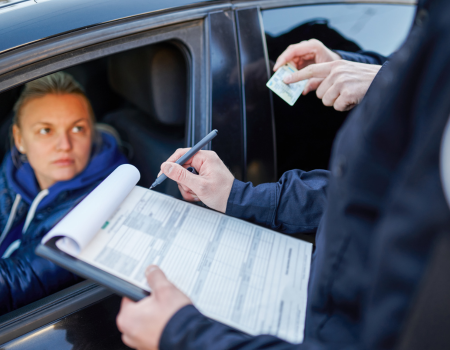 When you are stopped by law enforcement, are you required to show your ID? This is a common question we get, as legislation surrounding ID requests can be confusing. Law enforcement officials can’t request your ID without probable cause or reasonable suspicion.
When you are stopped by law enforcement, are you required to show your ID? This is a common question we get, as legislation surrounding ID requests can be confusing. Law enforcement officials can’t request your ID without probable cause or reasonable suspicion.
Understanding when you are required to show an ID, how the regulations change for motorists, and the consequences of refusing to furnish your ID are three important concepts to know before your next encounter with law enforcement.
When Are You Required to Show an ID in Arizona?
In Arizona, you are required to show your ID if a law enforcement official requests it. You don’t always need to be caught committing a crime to meet this requirement. Both probable cause and reasonable suspicion give authorities the ability to request an ID.
Probable cause means that a reasonable person would conclude that you were in the process of or have already committed a crime. Reasonable suspicion comes into play when the officer has facts and proof that you were involved in a crime.
Although you can ask the law enforcement official for proof of probable cause or reasonable suspicion, you want to avoid escalating the situation. If the officer feels threatened, you could provoke an arrest.
Do the Same Rules Apply to Motorists?
 The same rules apply to motorists. Arizona is considered a Stop and ID state. This gives law enforcement officials the ability to stop motorists and request their license, registration, and proof of insurance. However, you don’t need to answer probing questions, such as where you are heading or where you are coming from.
The same rules apply to motorists. Arizona is considered a Stop and ID state. This gives law enforcement officials the ability to stop motorists and request their license, registration, and proof of insurance. However, you don’t need to answer probing questions, such as where you are heading or where you are coming from.
In addition, you have the right to remain silent, the right to an attorney, and the right to prohibit unlawful searches regardless of if you are operating a vehicle, in public, or at your home. These three rights are important to remember when you are being questioned or detained.
What are the Consequences of Refusing to Show an ID in Arizona?
There can be serious consequences for refusing to show an ID in Arizona when requested. This includes monetary fines, potential jail time, and probation. If a law enforcement officer requests your ID, it’s best to give it to them without refusing. You can always contest the ticket or violation in court with an attorney.
Remember, it’s not a crime to refuse to answer questions without an attorney present, but it is illegal to withhold your license or identifying information when the officer can prove probable cause or reasonable suspicion. Knowing the difference can help you prevent being detained for noncompliance.
Summary
If you find yourself in a situation with Arizona law enforcement over showing an ID, contact an attorney right away. The right to an attorney is specifically outlined in Arizona legislation. What you say to law enforcement can and will be used against you, making it important to have an advocate on your side right away. Contact The Law Offices of Zayed Al-Sayyed right away for help navigating your ID refusal charges.

Can You Film Police in Arizona?
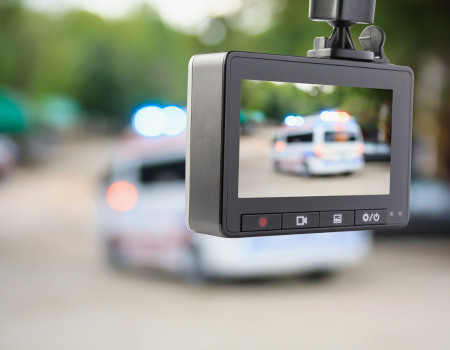 When you see an altercation or incident taking place, what’s the first thing most people do? Pull out their smartphones. Although it’s not illegal to film in public, you may need to comply with officer requests to stop filming to avoid obstruction charges and detainment.
When you see an altercation or incident taking place, what’s the first thing most people do? Pull out their smartphones. Although it’s not illegal to film in public, you may need to comply with officer requests to stop filming to avoid obstruction charges and detainment.
In this article, we’ll outline when it’s appropriate to film the police in Arizona and the potential consequences of noncompliance with officer requests. If you find yourself with an obstruction ticket or have been detained for filming, contact our team right away to discuss your options.
Can You Film Police in Arizona?
Filming the police in Arizona is legal. In mid-2023, a new law was circulating that would have made it illegal to knowingly film law enforcement officials within 8 feet or closer if the officer told the individual to stop recording. However, this piece of legislation was overturned by the Supreme Court. Currently, there are no laws prohibiting the filming of police officers in public.
There are loopholes that Arizona police officers can enforce to stop recordings. For example, when law enforcement officials order a crowd to disperse, this generally means stop filming and move on. Failing to follow this order can result in tickets and potential detainment.
How to Safely Film Police in Arizona
 When recording law enforcement officials, it’s important that you remain outside of the situation. This means that you don’t approach the police officers to get a better video and refrain from getting involved in the situation. Maintain a safe distance from the situation (at least 8 feet) and don’t display any threatening actions, such as running toward the situation or shouting at officers.
When recording law enforcement officials, it’s important that you remain outside of the situation. This means that you don’t approach the police officers to get a better video and refrain from getting involved in the situation. Maintain a safe distance from the situation (at least 8 feet) and don’t display any threatening actions, such as running toward the situation or shouting at officers.
Remember, you don’t legally need to stop recording when an officer asks you. You are within your Arizona rights to keep filming. However, some law enforcement officials can take your refusal as threatening and detain you, especially if they’ve issued an order for the crowd to disperse. In these situations, it’s best to comply, move on, and contact an attorney to determine your next course of action.
Bystander Film Can Be Beneficial for Your Case
Whether a bystander accidentally or intentionally recorded your situation, this film can be crucial to your case. Although law enforcement officials will usually seek out witnesses, it’s important to obtain film of your accident or altercation before you enter the courtroom. A qualified attorney can request all video footage of the incident so that you can enter the courtroom fully prepared.
Summary
Were you detained or fined for filming police in Arizona? If so, it’s important to go through the facts of your case with an attorney. You might have sufficient grounds for fighting the violation in court, especially with no current legislation prohibiting recording in public places. Contact out to our team at The Law Office of Zayed Al-Sayyed today to discuss your situation and go over the next steps.

What Questions Do Lawyers Ask Their Clients?
 When establishing a new lawyer-client relationship, many clients come prepared with a handful of questions to ask their new attorney. What you may not realize is that your attorney will have a handful of questions for you too!
When establishing a new lawyer-client relationship, many clients come prepared with a handful of questions to ask their new attorney. What you may not realize is that your attorney will have a handful of questions for you too!
Before you let the idea of being questioned make you nervous, it’s important to keep in mind that your lawyer is on your side. They want to see you succeed and they will do everything in their power to make that happen. None of the questions your lawyer will ask are meant to trip you up, they are simply meant to help them better understand you and your unique case.
So, what questions do lawyers ask their clients? Our team of skilled Phoenix attorneys at The Law Office of Zayed Al-Sayyed has narrowed down the most common questions for lawyers to ask their clients. By knowing what to expect, you can walk into the first meeting with your new lawyer fully prepared and ready to go.
Here are the top 5 questions that lawyers ask their clients in their first meeting:
-
Why did you come in today?
This is likely the first question your lawyer will ask you, so it’s important to be prepared with the details of your case. Be sure not to leave anything out, as even details that seem insignificant to you could be pertinent in helping your lawyer develop the best strategy to defend you.
-
What made you choose me?
With nearly 24,000 lawyers in the Phoenix metropolitan area, it’s a no-brainer that your lawyer will want to know why you chose them over the rest. Learning the answer will help them to understand how your mind works, how you solve problems, and what you value in a lawyer. This will help them begin to build a relationship with you and learn how to best support you in your case.
-
Have you worked with a lawyer before?
If you have never worked with a lawyer and are entirely unfamiliar with the legal process, your lawyer will make sure to explain everything thoroughly and walk you through the next steps in a way that you understand. If you have previously worked with a lawyer, they will likely want to know how they can make this experience a better one.
-
What are you hoping to accomplish?
By explaining to your lawyer what to hope to gain from working with them, you enable them to better support you. Be specific about the results you want out of your case and if compensation is the end goal, make sure to give them a number. This knowledge will help your lawyer craft the right strategy to ensure that you are satisfied with the result.
-
How would you like to communicate?
 This is an important question because it differs for everyone. Some people don’t have access to the internet at home, so email communication is not suitable. Others may have crazy work schedules that make phone or face-to-face communication a challenge, so emailing is the easiest route. Your lawyer will need to know which method of communication works best for you to ensure a smooth and expedient process.
This is an important question because it differs for everyone. Some people don’t have access to the internet at home, so email communication is not suitable. Others may have crazy work schedules that make phone or face-to-face communication a challenge, so emailing is the easiest route. Your lawyer will need to know which method of communication works best for you to ensure a smooth and expedient process.
These are just a few of the most common questions lawyers ask in a first meeting with a new client. By coming in prepared with honest answers, you can start to build a beneficial working relationship with your lawyer.
Top Attorneys in Phoenix, AZ
If you or somebody you know are in need of legal representation for a case, contact us today to schedule a free consultation with one of our experienced Phoenix attorneys at The Law Office of Zayed Al-Sayyed. Aggressive in our approach to your case and compassionate for each individual client, our proven track record of wins speaks for itself. Come in and find out why we are one of the top law firms in Phoenix, Arizona.

National Trial Lawyers Top 40 Under 40 Criminal Defense In Arizona
 The National Trial Lawyers is pleased to announce that Zayed Al-Sayyed of The Law Office of Zayed Al-Sayyed, PLLC in Phoenix has been re-selected as a Top 40 Under 40 Criminal Defense Trial Lawyer in Arizona after his first year as an exceptionally respected member. This honor has been given to Mr. Al-Sayyed for his superior skills and qualifications in the legal field. Membership in this exclusive organization is by invitation only and is limited to the top 40 attorneys in each state or region who have demonstrated excellence and have achieved outstanding results in their careers in either civil plaintiff or criminal defense law.
The National Trial Lawyers is pleased to announce that Zayed Al-Sayyed of The Law Office of Zayed Al-Sayyed, PLLC in Phoenix has been re-selected as a Top 40 Under 40 Criminal Defense Trial Lawyer in Arizona after his first year as an exceptionally respected member. This honor has been given to Mr. Al-Sayyed for his superior skills and qualifications in the legal field. Membership in this exclusive organization is by invitation only and is limited to the top 40 attorneys in each state or region who have demonstrated excellence and have achieved outstanding results in their careers in either civil plaintiff or criminal defense law.
 The National Trial Lawyers is a professional organization of premier American trial lawyers who have demonstrated exceptional qualifications in criminal defense or civil plaintiff law. The National Trial Lawyers provides recognition to these distinguished attorneys, and also provides essential legal news, information, and continuing education to trial lawyers across the country.
The National Trial Lawyers is a professional organization of premier American trial lawyers who have demonstrated exceptional qualifications in criminal defense or civil plaintiff law. The National Trial Lawyers provides recognition to these distinguished attorneys, and also provides essential legal news, information, and continuing education to trial lawyers across the country.
During Zayed Al-Sayyed’s first year as a Top 40 Under 40 Criminal Defense Trial Lawyer, Mr. Al-Sayyed has shown that he has continuously exemplified superior qualifications, leadership skills, and trial results as an admirable trial lawyer. The National Trial Lawyers: Top 40 Under 40 would like to thank Mr. Al-Sayyed for their continued and valued membership during such thriving times for this exclusive organization. The National Trial Lawyers anticipates exceptional growth for Mr. Al-Sayyed as an outstanding trial lawyer and well-respected member of The National Trial Lawyers: Top 40 Under 40.
To learn more about The National Trial Lawyers, please visit: http://thenationaltriallawyers.org/.
